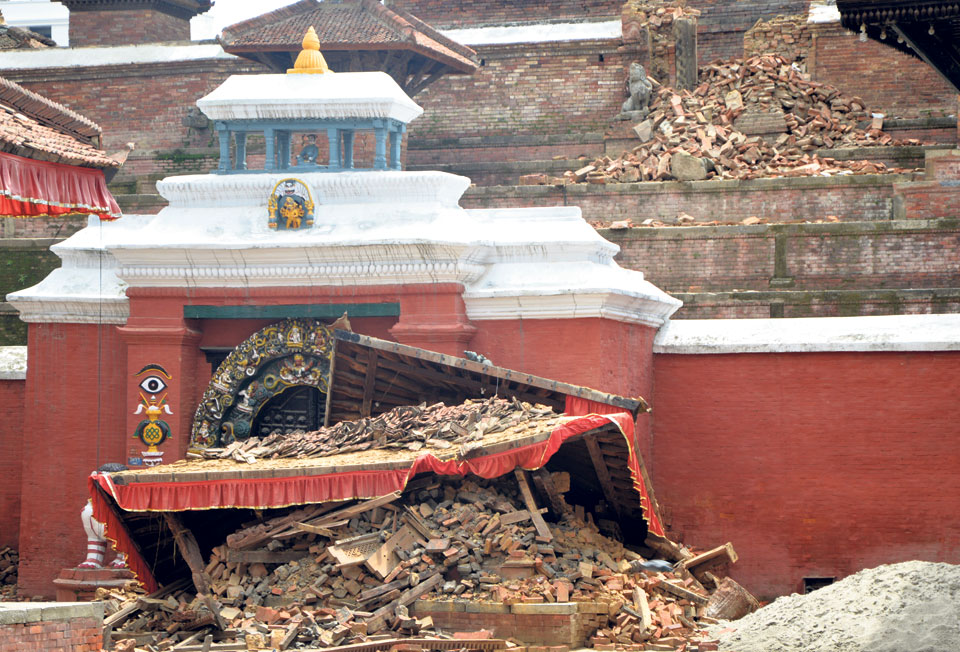Clear conscience wards off social evils
7 years ago

7 years ago

7 years ago

In 2017, the theme is "Cultural Heritage & Sustainable Tourism", chosen in relation to the United Nations International Year of Sustainable Tourism for Development and in the context of the 2030 Agenda for Sustainable Development and the Sustainable Development Goals.
Tourism definitions place cultural tourism with a boarder frame work of tourism and tourism management theory. Cultural tourism, for example, is recognized as a form of special interest tourism, where culture forms the basis of either attracting tourists or motivating people to travel.
On April 25th 2015 a 7.8 magnitude earthquake devastated Nepal. Many of the Kathmandu Valley's historic monuments, buildings and temples were either completely destroyed. Many of the temples destroyed or badly damaged in Kathmandu city were located in Kathmandu, Bhaktapur and Patan Durbar Square.
The government has developed a plan of action for reconstruction of all archaeological and cultural heritage site, including the UNESCO World Heritage Sites of Kathmandu Valley, across the country.
Few weeks before we remembered second anniversary of that tragic day. But there are not any changes (reconstruction and restoration) of these heritage. The damage to cultural heritage in Nepal as a result of the earthquake shows how important it is to build inventories and document historic buildings and their contents. Many donor agencies, archaeologists, engineers and other organizations have contributed their financial and physical resources for re-construction and restoration of damaged heritage but nothing change.
The Post Disaster Needs Assessment (PDNA) report has urged the government to announce 2017 and 2018 as Visit Nepal Year to assure visitors that reconstruction and rehabilitation will be completed by then. The report said that initially there was a need to re-build and re-brand the image of tourism, and significant efforts and resources would be required to do this.
Heritage and tourism sectors are challenges that are likely to arise during the rebuilding of communities including the inherent dichotomy in balancing the requirements prescribed by heritage legislation for the rebuilding of homes, gentrification caused by tourism, lack of basic infrastructure and safety, and the increasing commercialization/commodification of these areas due to tourism. Like in other parts of the world, tourism has been a driver for increased economic activity.
The contribution of foreign tourism sector in the national development of Nepal has been quite significant. However Nepalese tourism sector has not been developed as expected. In the scenario of low productive in agriculture sector, the condition of having no abundant resources for industrial development, tourism can be a high productive sector to compensate the unemployment and disguised unemployment prevailing in the country.
In 2017 we are celebrating World Heritage Day with the theme of "Cultural Heritage & Sustainable Tourism". The heritage are the major attraction for development tourism.
The writer works with Swiss Agency for Development Co-operation.
Leave A Comment